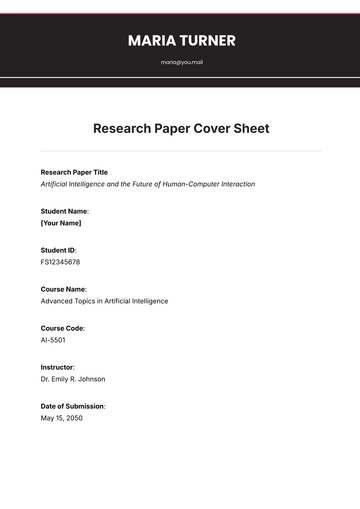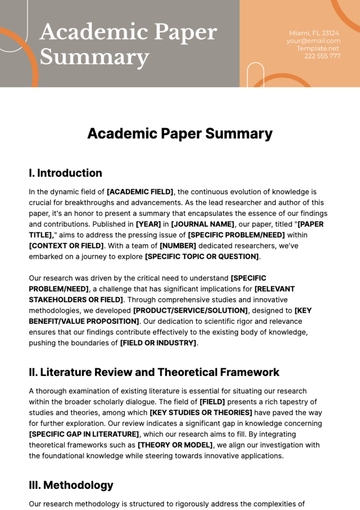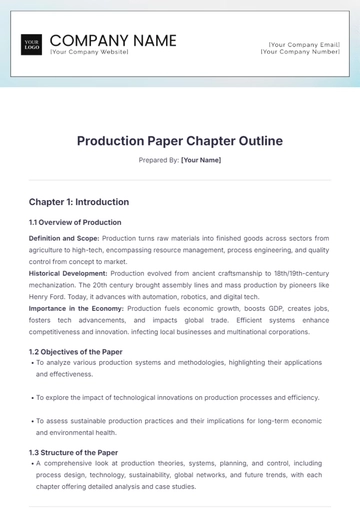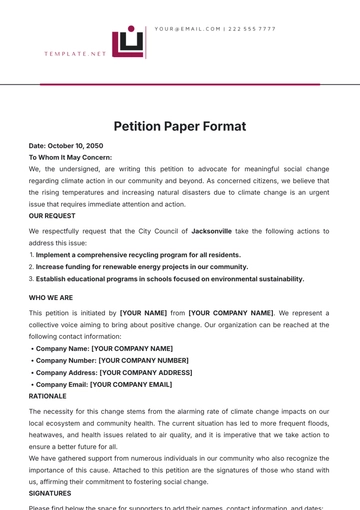Free VA White Paper

_____________________________________________________________________________________
_____________________________________________________________________________________
[Your Company Name]
[Your Name]
[Date]
[Your Department]
_____________________________________________________________________________________
I. Executive Summary

This white paper provides a comprehensive overview of the state of virtual assistants (VAs), encapsulating key trends, use cases, technological innovations, and prospects. Aimed at stakeholders in technology and business sectors, it synthesizes current data, anticipated developments, and strategic insights into how VAs can be effectively integrated into modern business and social environments.
II. Introduction
The increasing integration of virtual assistants into various sectors highlights their growing importance. This document delves into the expanding capabilities of VAs and their evolving role across industries, emphasizing the need for businesses to leverage this technology to stay competitive.
III. Current Landscape
The use of virtual assistants has escalated across multiple platforms, with enhancements in AI and machine learning fueling advancements in this field. Notable areas include:
Consumer electronics (e.g., smart homes and smartphones)
Customer service and support sectors
Healthcare management
Educational tools and e-learning environments
IV. Applications and Use Cases
Virtual assistants are transforming operations in numerous fields:
In healthcare, VAs schedule appointments, facilitate patient communication, and manage records.
In education, they provide personalized learning experiences and administrative support.
In customer service, VAs offer 24/7 support, handling inquiries and solving common issues.
V. Technological Innovations

Recent advancements that are shaping the capabilities of virtual assistants include:
Natural language processing for improved interaction
Enhanced machine learning models that predict user needs more accurately
Advancements in voice recognition technologies supporting diverse languages and accents
VI. Challenges and Opportunities
While the deployment of virtual assistants presents numerous opportunities, there are also significant challenges:
Privacy concerns: Secure handling of sensitive data
Interoperability: Seamless integration with existing technologies
User experience: Developing intuitive and user-friendly interfaces
VII. Future Outlook

The future landscape of virtual assistants is poised for dynamic expansion with implications for:
The integration of AI deeper into personal and professional spaces
Innovations that preemptively solve user problems
Regulatory frameworks designed to manage the ethical dimensions of VA technologies
VIII. Conclusion
The exploration and integration of virtual assistants into daily life and business operations present both transformative opportunities and notable challenges. This white paper has outlined the current state of the art, anticipated technological advancements, and strategic insights necessary for leveraging virtual assistants effectively.
IX. References
Bolton, T., Dargahi, T., Belguith, S., Al-Rakhami, M., & Sodhro, A. H. (2021). On the Security and Privacy Challenges of Virtual Assistants. Sensors, 21(7), 2312. https://doi.org/10.3390/s21072312
Merton, R. C. (1987). A Simple Model of Capital Market Equilibrium with Incomplete Information. the Journal of Finance/the Journal of Finance, 42(3), 483–510. https://doi.org/10.1111/j.1540-6261.1987.tb04565.x
Guzman, A. (2019). Voices in and of the machine: Source orientation toward mobile virtual assistants. Computers in Human Behavior, 90, 343–350. https://doi.org/10.1016/j.chb.2018.08.009
_____________________________________________________________________________________
- 100% Customizable, free editor
- Access 1 Million+ Templates, photo’s & graphics
- Download or share as a template
- Click and replace photos, graphics, text, backgrounds
- Resize, crop, AI write & more
- Access advanced editor
Unlock the power of concise communication with the VA White Paper Template from Template.net. This editable, customizable template streamlines the creation of impactful white papers. Accessible in our AI tool, tailor it to your specific needs effortlessly. Ensure clarity and professionalism in presenting your VA-related insights with this versatile template.





























